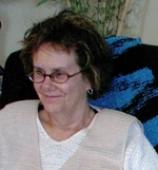Vote in Our Poll
Which of the following fiction titles releasing in February have you read or do you plan to read? Please check all that apply.
Word of Mouth
Tell us about the books you’ve finished reading with your comments and a rating of 1 to 5 stars. During the contest period from February 6th to February 20th at noon ET, three lucky readers each will be randomly chosen to win a copy of KEEPER OF LOST CHILDREN by Sadeqa Johnson and THIS IS NOT ABOUT US by Allegra Goodman.
A Note from Carol
Our major goal for 2026 is to redesign Bookreporter and the rest of the sites in The Book Report Network. How can you help? We have launched a GoFundMe campaign and are asking for donations. Any level of donation that you would be comfortable with is sincerely appreciated. If you would prefer donating via check, please send to:
The Book Report, Inc.
16 Mt. Bethel Road, Suite 365
Warren, NJ 07059
Click here to read more about our plans and to donate.
Coming Soon
Curious about what books will be released in the months ahead so you can pre-order or reserve them? Then click on the months below.
Bookreporter.com Bets On
New in Paperback
The following are lists of new paperback releases that we think will be of interest to you.
Books On Screen
Reading Group Guides
All the Little Houses by May Cobb
Crux by Gabriel Tallent
The Exes by Leodora Darlington
Fireflies in Winter by Eleanor Shearer
Good People by Patmeena Sabit
How to Commit a Postcolonial Murder by Nina McConigley
In Her Defense by Philippa Malicka
The Inheritance by Trisha Sakhlecha
It's Not Her by Mary Kubica
Last Call at the Savoy by Brisa Carleton
Meet the Newmans by Jennifer Niven
Missing Sam by Thrity Umrigar
The Society by Karen Winn
Vigil by George Saunders
We Were Never Friends by Kaira Rouda
When We Were Brilliant by Lynn Cullen
Crux by Gabriel Tallent
The Exes by Leodora Darlington
Fireflies in Winter by Eleanor Shearer
Good People by Patmeena Sabit
How to Commit a Postcolonial Murder by Nina McConigley
In Her Defense by Philippa Malicka
The Inheritance by Trisha Sakhlecha
It's Not Her by Mary Kubica
Last Call at the Savoy by Brisa Carleton
Meet the Newmans by Jennifer Niven
Missing Sam by Thrity Umrigar
The Society by Karen Winn
Vigil by George Saunders
We Were Never Friends by Kaira Rouda
When We Were Brilliant by Lynn Cullen
Copyright © 2026 The Book Report, Inc. All Rights Reserved.













